Astrotourism holidays in Naxos are ideal due to the island’s abundance of dark-sky destinations. As the only Cycladic island with extensive mainland and highlands, Naxos offers pristine, clear skies away from light pollution found in crowded towns. You can revel in the beauty of dark skies, observe celestial objects, witness planetary phenomena, and indulge in magnificent stargazing experiences, particularly on the north, west, and east sides of Naxos, where light pollution is minimal or nonexistent due to the scarcity of villages.
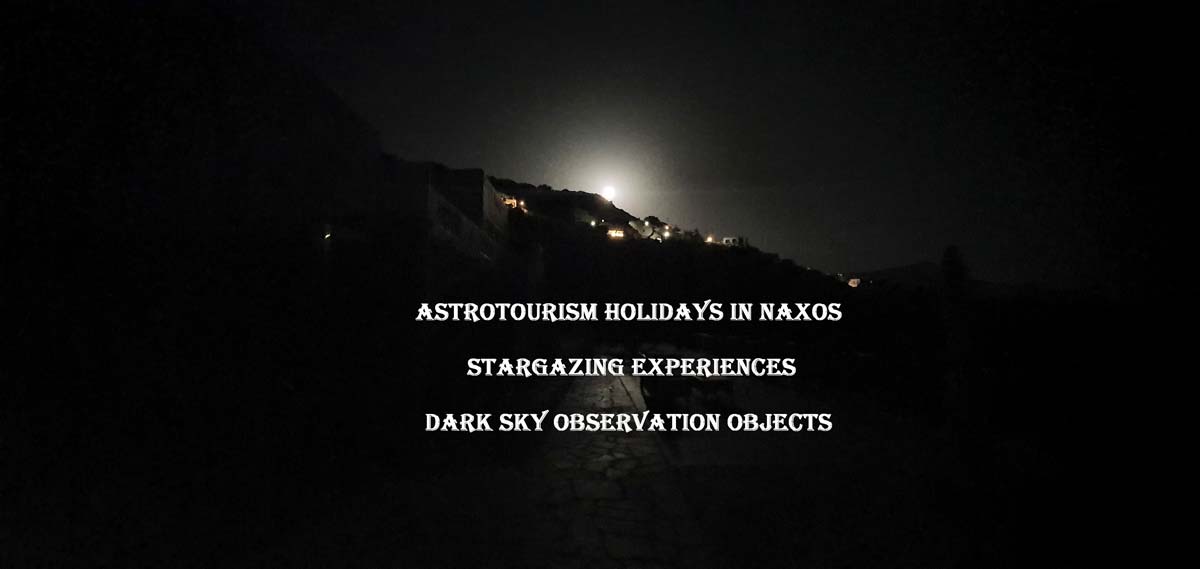
Where can we find clear skies for stargazing in Naxos? Where are the best spots for stargazing on the island?
The Naxos town, Chora, and its surrounding areas are bathed in light pollution, making them less ideal for stargazing. For an unparalleled celestial experience, venture off the beaten path to the island’s highlands, where astrotourism thrives. Astronomy enthusiasts will find themselves enchanted by Naxos’ mountainous terrain, boasting some of Greece’s darkest skies. With minimal light pollution in these regions, frequent clear nights, and low humidity, Naxos offers a canvas of velvet-black skies adorned with millions of shimmering stars. The sheer number of stars visible here is truly breathtaking compared to the night skies of Northern Europe.
The villages surrounding Naxos town, including Chora, are heavily illuminated by streetlights and other artificial sources, resulting in excessive light pollution that disrupts natural cycles and hampers stargazing. Consequently, these inhabited areas experience significant skyglow, with the dark sky only becoming visible beyond the village of Halki as you head north towards Moni. Similarly, the stretch from Filoti village to Apeiranthos is not conducive to stargazing, as these large, brightly lit villages contribute significantly to light pollution.
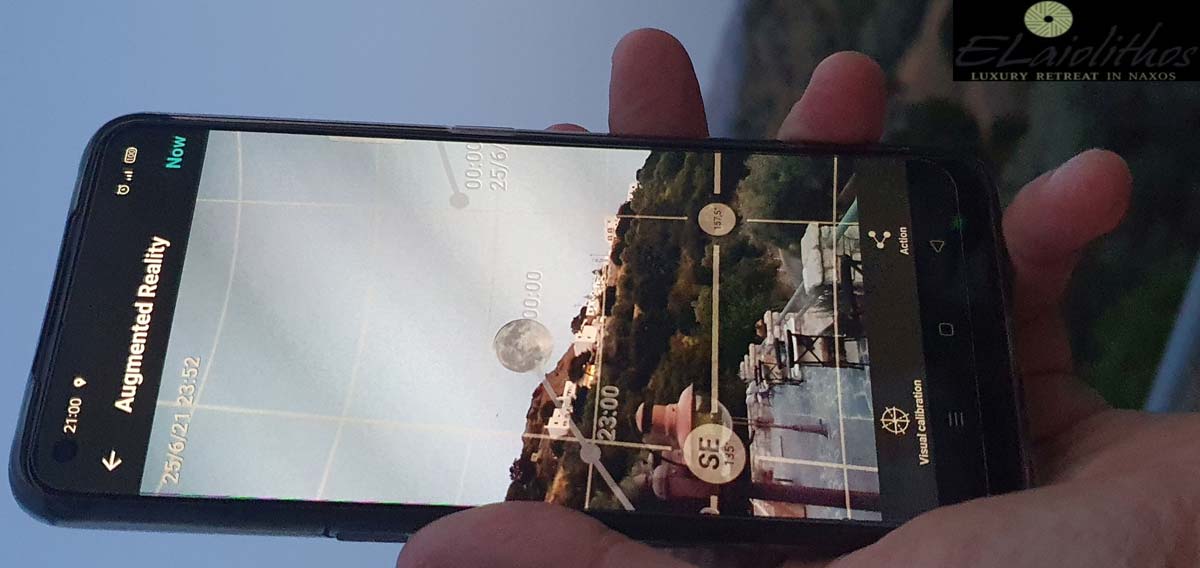
The sky is considered one of the most captivating wonders, and location plays a significant role in experiencing and studying the night sky. With its mountainous terrain, Naxos ranks among the top five locations in Greece for stargazing, unveiling an ocean of glittering stars, the radiant Milky Way, constellations, star clusters, Saturn, the Andromeda Galaxy, the Rosette Nebula, the Bubble Nebula, and much more. Here, the universe unfolds, revealing a myriad of stars, constellations, shooting meteors, and mesmerizing auroras.
Ideal spots for stargazing experiences and observing the night sky in Naxos are found in the highlands away from villages or mountains devoid of nearby settlements.
Have a happy astrotourism holiday in Naxos island, Greece…….A celestial getaway to Naxos is calling.
There is a map of Naxos and Paros here and you can put it here so people can understand exactly when they see the picture with the pollution, a screenshot of the map of Naxos and Paros would be perfect
At ELaiolithos, you can experience both stargazing and accommodation in a single enchanting location. Our astrotourism retreat seamlessly merges the captivating allure of astronomy with the tranquil charm of vacationing on a Greek island, inviting you to immerse yourself in the awe-inspiring wonders of the cosmos.
Nestled in an exceptional location, ELaiolithos is a haven for astrotourism. Whether by day or night, the surroundings are breathtakingly beautiful. Here, amidst the stunning starry skies and warm hospitality, you can enjoy an unforgettable astrotourism holiday experience, perfect for stargazing and observing the night sky in all its splendor.
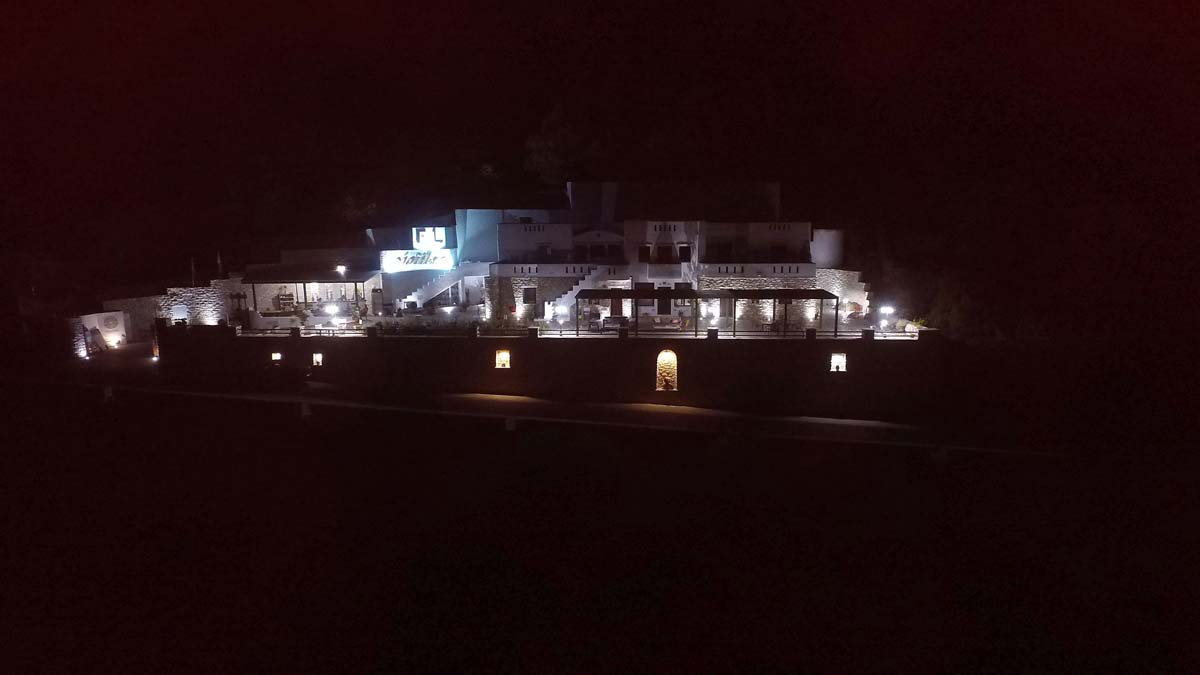
What is Astrotourism?
Astrotourism means traveling for space related experiences here on earth. Meaning traveling somewhere with beautiful surroundings, that has less light pollution that doesn’t obscure the stars. That means exploring rural places for their amazing dark skies with the express purpose of stargazing.
Astrotourism is one of the simplest, and most accessible, sustainable forms of travel that brings you closer to nature, helping you understand the physical world and its dynamics. It’s a unique eco friendly experience that goes back many centuries when mankind looked up to the stars, imagined figures, and gave them meanings. Humans have been admired and fascinated with the stars and space travel since the beginning of time.
The universe is full of mesmerizing wonders, but since they’re so far away, these objects are barely noticeable with the naked eye. With the help of a high-quality telescope though, you can unlock the finer details and observe things that a naked eye will never see.
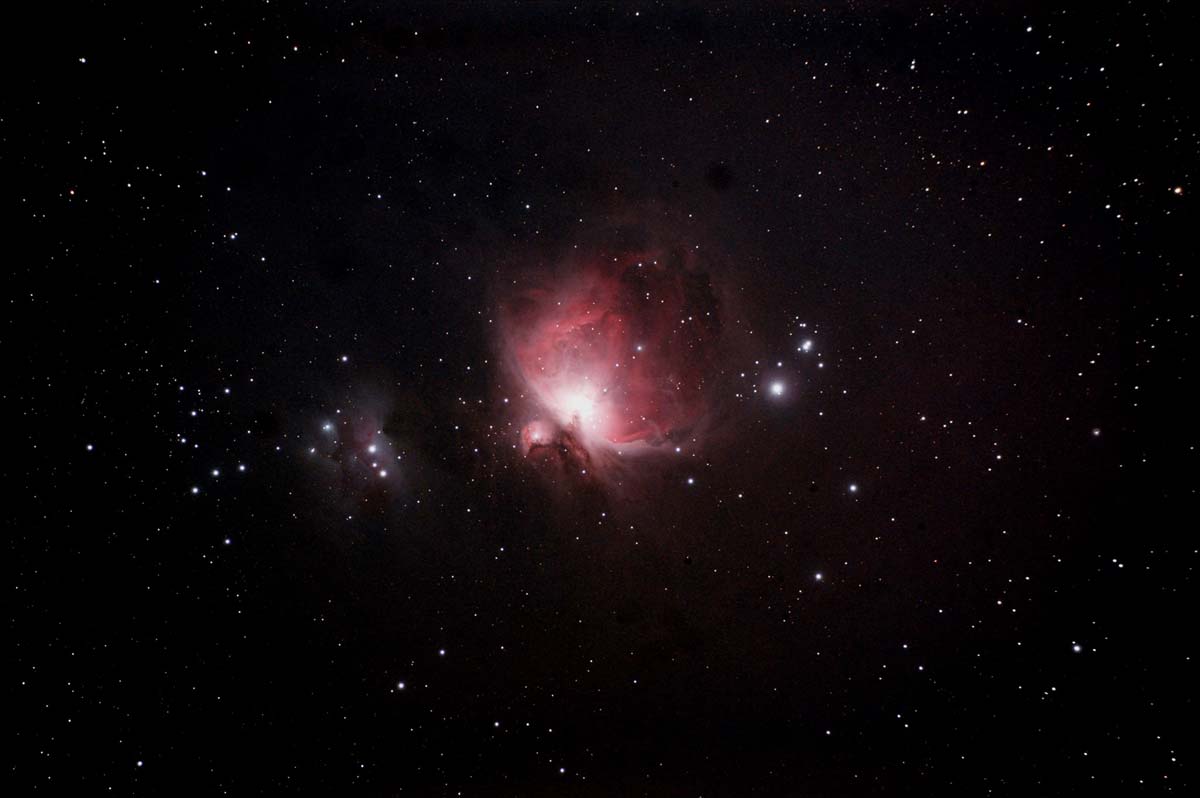
The Universe is also an object of fear to men. The secrets it withholds are immense and mankind has always tried to drive meaning out of the sky above. We are feeble, negligible, and ephemeral in this vastness. The sky represents infinity, eternity, immortality, and transcendence; it is the residence of the gods, it is omnipotence. And here comes the appeal of the stargazing experience because we get the feeling of putting our own lives in perspective.
Much of the world’s population lives in urban areas with heavy artificial light pollution meaning a lack of night sky visibility. In some places people go outside and when look at the night sky, the stars are missing. The Covid19 pandemic brought great interest in the night sky, in part because many people were stuck at home with little access to the outdoors, and the sky has provided them the only limitless sense of space. During lockdowns the back-garden stargazing proved to be a popular activity at home, and as travel recovers, many people have start looking for socially distanced destinations and sustainable experiences, such as astrotourism.
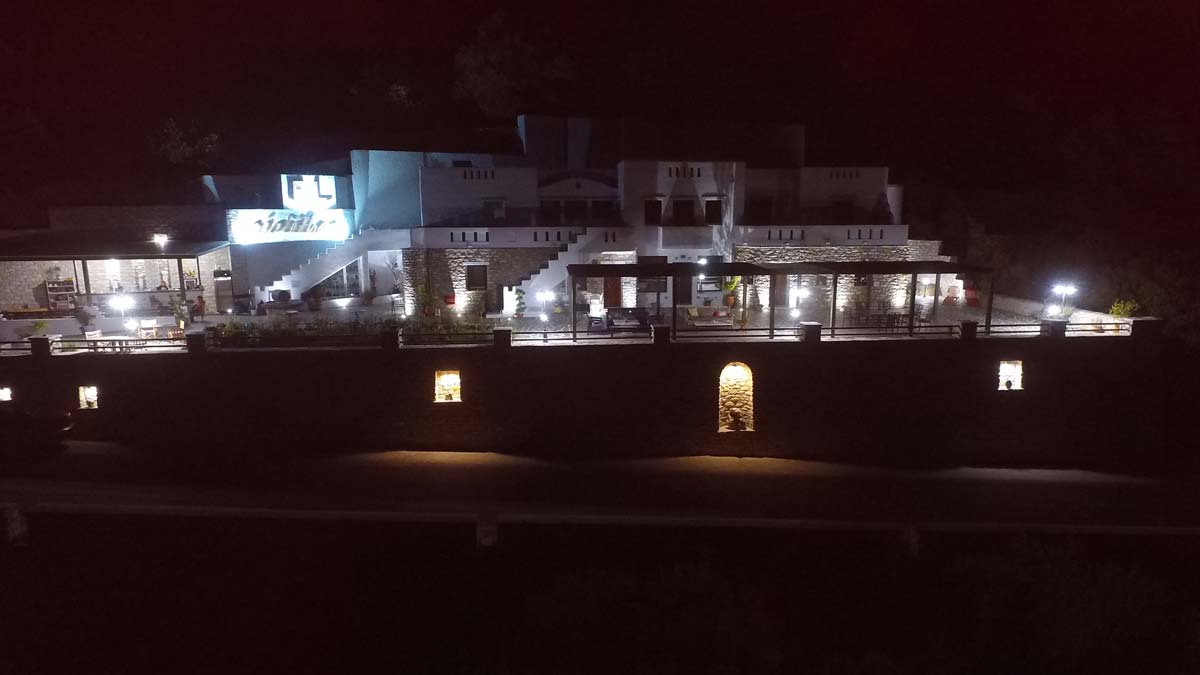
What stargazing means?
Stargazing is the night sky observation, and it is a novel way to appreciate the universe’s wonders, and witness the sky in its natural glory.
Glamour nowadays is considered the grandeur of having a meaningful life, and enhancing escapes where you can make emotional connections with new destinations, cultures, nature, the environment, and the universe. There is something primal about watching the night sky, and nothing inspires more wanderlust than pondering the vastness of the universe underneath a sky full of constellations.
The Covid19 pandemic lockdown made people more conscious, and drew them into the search of sustainable experiences such as the astrotourism travel. They’re looking to enjoy comfortable and private accommodation in peaceful locations, to be mindful of their surroundings, and detox for a while. Thus, the search for stargazing experiences looks to be the next big thing.
Few memories are sweeter than those stargazing nights! Every stargazing experience reawakens the child inside us that is eager to discover the world and its limits!
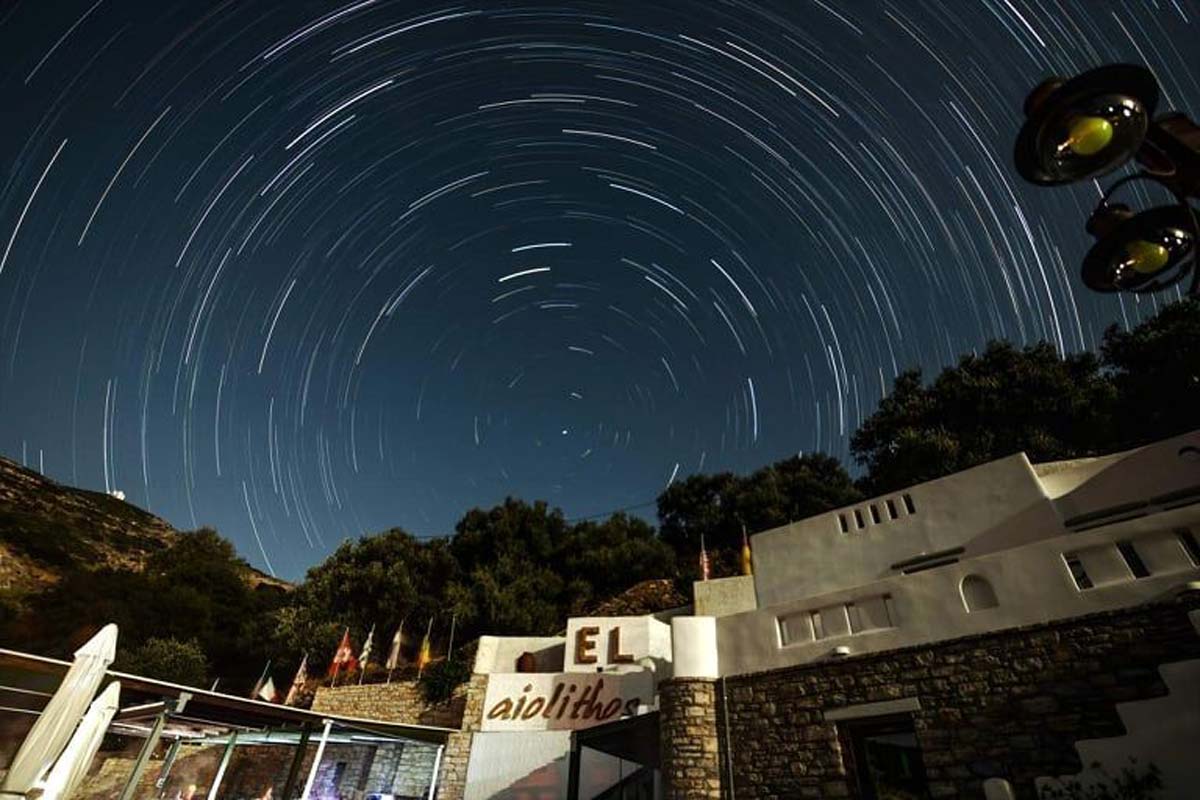
Why are dark skies important?
Since the late 19th century, we have filled our planet with electric light. Most continents including the United States, Europe, and many parts of Asia are now so lit up that 99% of people cannot see the Milky Way or any stars.
Light waste is a huge contributor to carbon emissions and has proven repercussions on human health and the biodiversity that keeps our planet and food chain functioning. The vast amount of light waste emitting from our cities is destroying the rhythms of our world in unimaginable ways. Light pollution, which means not dark skies, disrupts the rhythm of day and night that so many plants and animals depend upon, it affects the migration patterns of many species, the predator-prey relationships, and the circadian rhythms of many organisms.
Dark skies are important because:
- They preserve the earth’s ecosystem. A night sky without artificial light is vital to the proper functioning of natural ecosystems
- Protect our precious wildlife. The night sky helps the already endangered species survive by maintaining their natural environments
- Affect our body and brain. We, humans, need the darkness to make our immune systems work
- Offer us the opportunity of stargazing. Dark skies make us bring back ourselves in tune and connect with ourselves, our family, friends, and nature, while stargazing is letting the starlight and moonlight rejuvenate our soul. We pause to gaze up at the night sky, reflect on our place in the universe, and feel the positive earth’s vibes
- Offer sustainable holiday travel. Astrotourism lovers are “dark skies seekers.” They’re looking for places where the sky is the darkest and clearest, to enjoy its beauty.
We guarantee you Naxos’ dark skies will reimburse you in big ways!
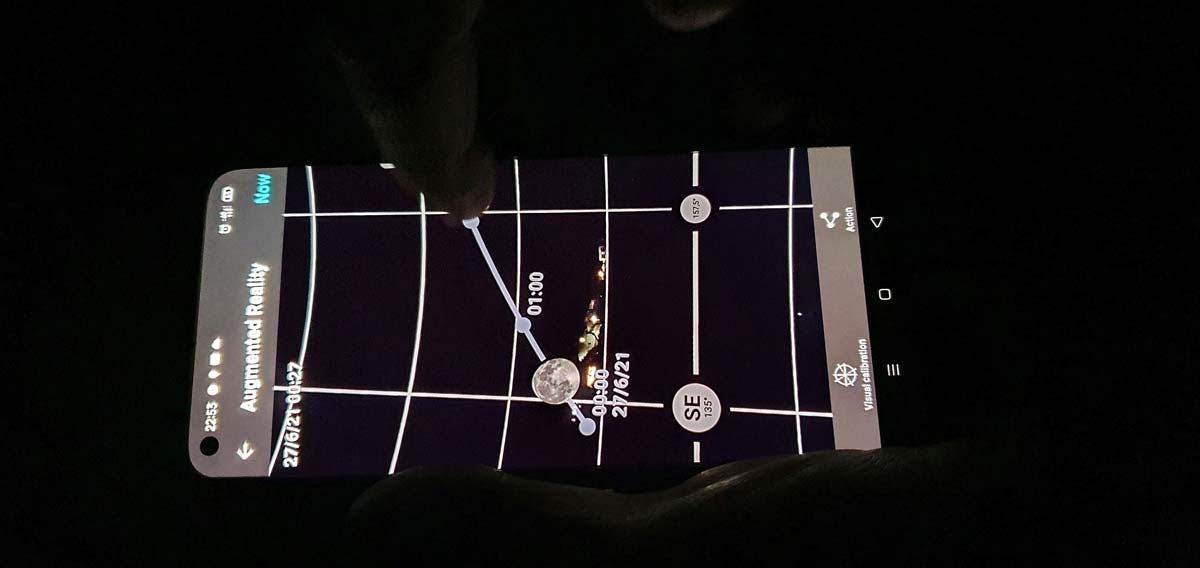
What is the Milky Way
Milky way is the name of the spiral galaxy in which our solar system is located. It’s our home in space. The earth orbits the Sun in the Solar System, and the Solar System is embedded within this vast galaxy of stars. The Milky Way has inspired humans for centuries. Unfortunately with the artificial light pollution, many areas in the world cannot even see the Milky Way, which is incredibly sad, and it has become more difficult to figure out where to go stargazing.
In the northern hemisphere, the Milky Way is visible in the southern half of the sky. This makes Greece one of the best places in the world to see and photograph the galaxy because of the country’s geographic location in Southern Europe at the crossroads of Europe, Asia, and Africa.
Any filmmaker and photographer would feel very fortunate to stay up here because the Milky Way is always visible in Naxos’ northern sky.
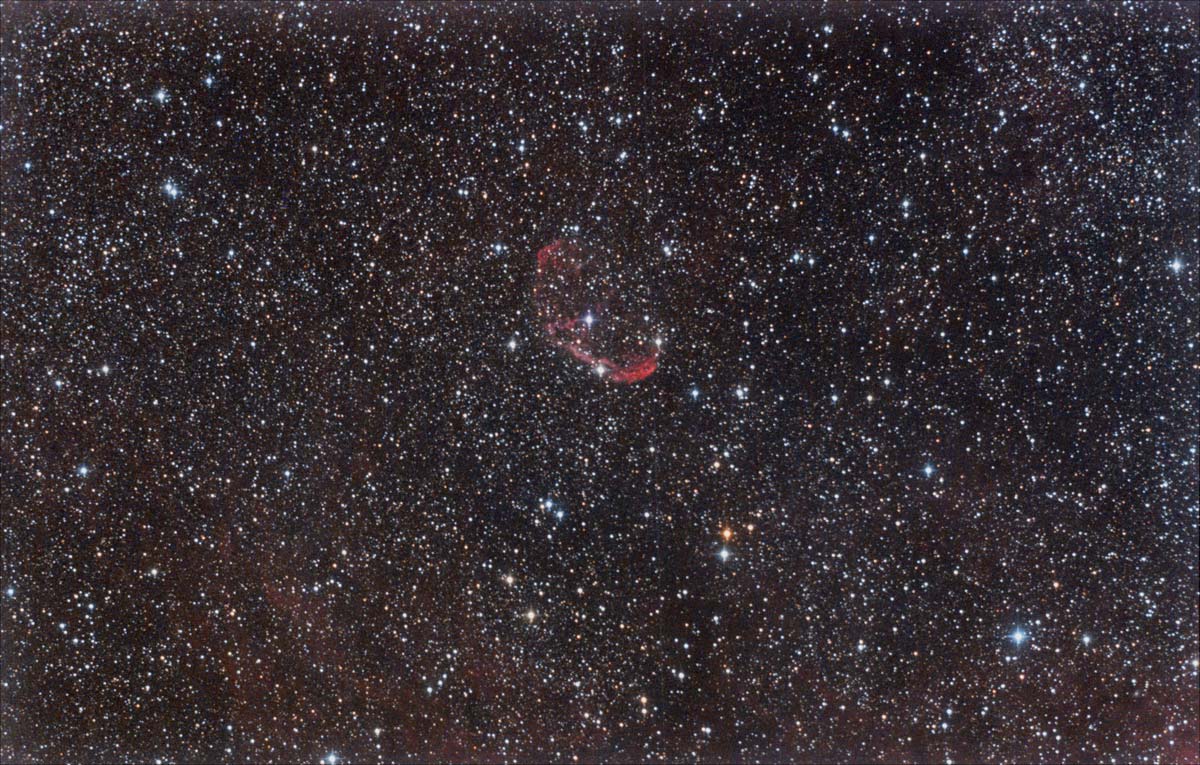
What is the Nebulae?
Nebulas are star making factories. Nebulae are clouds made up of dust and gas, with its basic elements to be hydrogen and helium. Checking a nebulae through the telescope is a more intense experience. Doing so lets you see details and colors beyond just white light in the night sky.
Nebulae cannot affect the earth. The difference between nebulae and galaxies is their big difference in size, and their basic structure. Nebulae play a crucial role in the chemical evolution of our galaxy, returning material to the inter stellar medium which has been enriched in heavy elements and other products of nucleosynthesis such as carbon, nitrogen, oxygen and calcium.
For more information you can read here.







